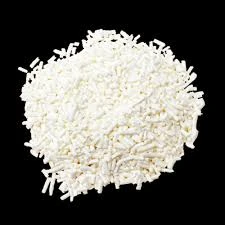
potassium sorbate food preservative
Understanding Potassium Sorbate A Common Food Preservative
Potassium sorbate, a widely used food preservative, is derived from sorbic acid, a compound initially isolated from the berries of the mountain ash tree. Over the years, potassium sorbate has gained popularity among food manufacturers due to its effectiveness in inhibiting mold, yeast, and some bacteria. This article explores the properties, applications, and safety considerations associated with potassium sorbate.
Understanding Potassium Sorbate A Common Food Preservative
In addition to food, potassium sorbate is also employed in personal care products, cosmetics, and even pharmaceuticals. Its antimicrobial properties are valuable in these industries, helping to maintain the integrity and safety of products. For instance, it is often used in lotions, shampoos, and creams to prevent spoilage caused by mold and bacteria during storage.
potassium sorbate food preservative

While potassium sorbate is recognized for its effectiveness, questions regarding its safety have arisen. Regulatory bodies such as the U.S. Food and Drug Administration (FDA) and the European Food Safety Authority (EFSA) have evaluated potassium sorbate and deemed it safe for consumption within established limits. The FDA classifies it as “Generally Recognized As Safe” (GRAS), meaning that it is considered safe when used according to established guidelines. However, like many food additives, sensitivity can vary among individuals. Some people may experience allergic reactions, leading to symptoms like skin irritation or respiratory issues, though such instances are relatively rare.
Research into the health effects of potassium sorbate has mostly concluded that when consumed at the permitted levels, it poses no threat to human health. However, there remains ongoing research into the long-term effects of consuming preservatives, including potassium sorbate. As a precaution, some consumers prefer to avoid artificial additives, opting for organic or preservative-free alternatives. This growing trend towards natural products has pushed many food manufacturers to reformulate their offerings to appeal to health-conscious consumers.
In summary, potassium sorbate is an essential preservative in the food industry, valued for its ability to prolong shelf life and enhance product safety. While it is deemed safe by various health authorities, the debate over artificial additives continues, prompting ongoing research and consumer awareness initiatives. As consumers become increasingly informed about food ingredients, manufacturers must strike a balance between preserving product integrity and meeting the demand for natural alternatives. Understanding preservatives like potassium sorbate is crucial in making informed choices about the foods we consume and ensuring a healthy diet for ourselves and our families.
-
Pure Sodium Dichloroisocyanurate Dihydrate | Powerful DisinfectantNewsAug.29,2025
-
Industrial Chemicals: Quality & Purity for Every IndustryNewsAug.28,2025
-
Nitrile Rubber Honoring Strict Production StandardsNewsAug.22,2025
-
Aspartame Ingredients Honoring Food Safety ValuesNewsAug.22,2025
-
Fertilizer for Balanced Plant NutritionNewsAug.22,2025
-
Cyanide Gold Processing with High Purity AdditivesNewsAug.22,2025
-
Formic Acid in Textile Dyeing ApplicationsNewsAug.22,2025
Hebei Tenger Chemical Technology Co., Ltd. focuses on the chemical industry and is committed to the export service of chemical raw materials.
-

view more DiethanolisopropanolamineIn the ever-growing field of chemical solutions, diethanolisopropanolamine (DEIPA) stands out as a versatile and important compound. Due to its unique chemical structure and properties, DEIPA is of interest to various industries including construction, personal care, and agriculture. -

view more TriisopropanolamineTriisopropanolamine (TIPA) alkanol amine substance, is a kind of alcohol amine compound with amino and alcohol hydroxyl, and because of its molecules contains both amino and hydroxyl. -

view more Tetramethyl Thiuram DisulfideTetramethyl thiuram disulfide, also known as TMTD, is a white to light-yellow powder with a distinct sulfur-like odor. It is soluble in organic solvents such as benzene, acetone, and ethyl acetate, making it highly versatile for use in different formulations. TMTD is known for its excellent vulcanization acceleration properties, which makes it a key ingredient in the production of rubber products. Additionally, it acts as an effective fungicide and bactericide, making it valuable in agricultural applications. Its high purity and stability ensure consistent performance, making it a preferred choice for manufacturers across various industries.





